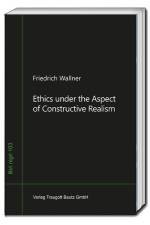von Hans Ulrich Funk
75,00 €
Im Harz mit seinem Umland ist seit rund 1000 Jahren - spätestens mit der 1361 vollendeten, legendären Orgel des Nicolaus Faber im Dom zu Halberstadt - das Wirken zahlreicher Orgelbauer bezeugt, deren Instrumente vielfach noch erhaltenen sind. Namen wie Henning Henke, Jonas Weigel, Martin und Christian Vater, Andreas Schweimb, Jacob John, Friedrich Besser, Arp Schnitger, Johann Georg Papenius, Christoph Contius, Christoph Treutmann I, Johann Georg Müller, Johann Georg Eggert, die Orgelbauer Boden, Tobias Hansen, Johann Andreas und Gustav Engelhardt, Carl Giesecke, Friedrich Ladegast, die Orgelbauer Euler, Carl Heyder, Ernst Röver, Philipp Furtwängler, Louis Krell, Furtwängler & Hammer, Paul Ott, Rudolf Janke, Karl Schuke, Martin Haspelmath, Albrecht Frerichs, Reinhard Hüfken, Jost Truhtmann, Jürgen Ahrend, Franz Rietzsch, Martin Hillebrand, Elmar Krawinkel, Orgelbau Eule, Orgelbau Goll, Freiburger Orgelbau sowie Orgelbau Sauer & Heinemann - um nur einige zu nennen - haben hier in den vergangenen Jahrhunderten bis in die Gegenwart hinein gewirkt. Damit darf man die Harzregion durchaus als orgelbaugeschichtlich bedeutsam bezeichnen. Besonders das Zusammentreffen der stilistisch unterschiedlichen Einflüsse Nord- und Mitteldeutschlands haben die Region in der Vergangenheit geprägt und tun es bis heute. Verdienstvolle Restaurierungen der zahlreichen historischen Orgeln in den letzten Jahrzehnten und bemerkenswerte Neubauten weisen diese Orgellandschaft als eine der interessantesten in Deutschland aus.Der Herzberger Orgelbauer Johann Andreas Engelhardt wie auch sein Sohn Gustav Carl prägten die Region im 19. Jahrhundert mit ihren nachbarock-frühromantischen Orgeln. Über 50 Jahre lang wirkten sie - aus dem mitteldeutschen (heutigen) Burgenlandkreis zugewandert - in der ehemaligen kleinen Residenz-Stadt, dem damaligen Flecken Herzberg. Sie schufen rund 100 Instrumente, von der Kleinorgel bis zum stattlichen Neubau in der Marktkirche Goslar sowie dem weitgehenden Umbau älterer Orgeln. Neben dem Eichsfeld, dem gesamten Harzgebiet und dessen Umland waren sie schwerpunktmäßig in der Stadt Braunschweig und deren Umland sowie der südlichen Elm-Region tätig. Vereinzelt reichte ihr Einflussgebiet bis ins Leinetal um Göttingen, das Hannoversche Umland sowie den heutigen Heidekreis bis in die Region um Uelzen. Sie gehörten zu den gefragtesten Orgelbauern jener Zeit und konkurrierten oft mit Meistern wie u. a. der Familie Euler, der Familie Boden, Philipp Furtwängler, Wilhelm Meyer, Heinrich Schaper und Carl Giesecke.Knapp die Hälfte ihrer Instrumente ist erhalten. Sofern liebevoll restauriert, bezeugen sie bis heute die hochstehende Klangkultur ihrer Erbauer. Zeitgenössische Orgelexperten bescheinigten den Herzberger Orgelbauern in überwiegend hochlobenden Gutachten die technische Perfektion, das leichtgängige "Tractement", die "gute Lunge", das sachgerecht mensurierte und gut hergestellte Pfeifenwerk und den brillant-gravitätischen Klang der Orgeln. In den besten der erhaltenen Instrumente - so sie in der Vergangenheit eine fachgerechte Restaurierung erfuhren - kann man die damaligen Wertschätzungen auch heute noch nachvollziehen.Es war nunmehr an der Zeit, das Schaffen dieser bedeutenden Orgelbauer gründlicher zu erforschen. Das bezieht sich auf deren Arbeitsweise, die Beschreibung aller jemals von ihnen erbauten oder umgebauten Orgeln sowie die Orgelbauerfamilie Engelhardt und deren Mitarbeiterschaft. Darüber hinaus wird bei den erhaltenen Orgeln durch den u. a. als Orgelbauer ausgebildeten und darin derzeit wieder tätigen Autor aufgezeigt, worauf ggf. bei zukünftig geplanten Arbeiten an bislang noch nicht sachgerecht behandelten Engelhardt-Orgeln geachtet werden sollte. Ein angehängtes Kapitel (eher für die Orgelbauer und Orgelsachverständigen gedacht) befasst sich mit Fragen zum Thema Mensuration und Intonation. Hierbei hat sich gezeigt, wie ganz allgemein hilfreich die gewonnenen Erfahrungen bei der Arbeit am Engelhardt'schen Pfeifenwerk sein können.Umfangreiches und weitgehend farbiges Bildmaterial soll helfen, dem interessierten Leser/der Leserin die Stilistik der vielfach individuell-künstlerisch gestalteten Orgelgehäuse aufzuzeigen. Auch ein Großteil der betreffenden altehrwürdigen Kirchen ist mit abgebildet.







